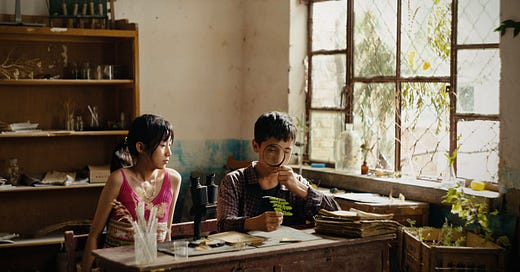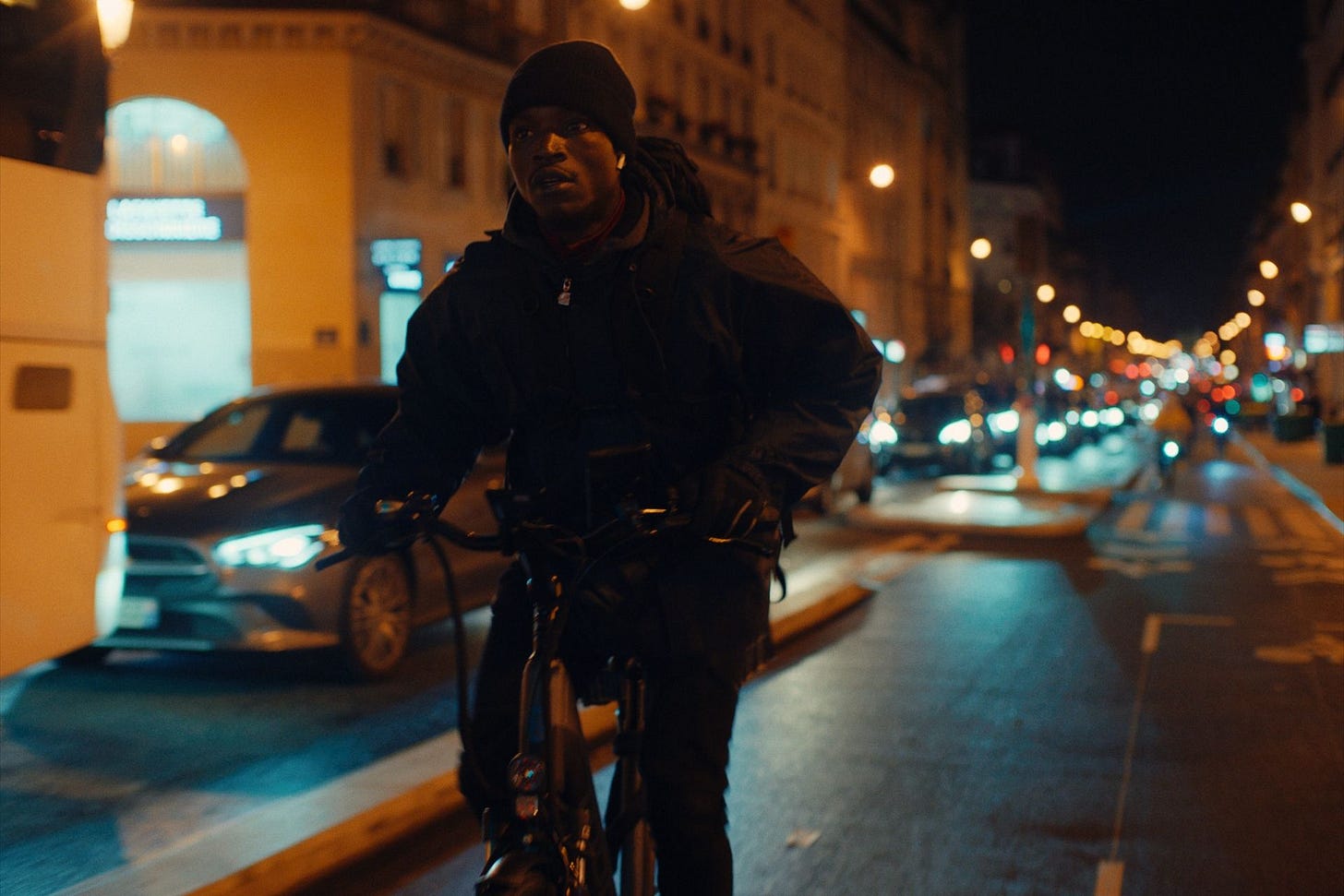The Botanist (Jing Yi, 2025):
The Botanist is a film that tackles familiar dichotomies (tradition vs. modernity, the country vs. the city) and borrows from established arthouse traditions, but is elevated by Jing’s well-calibrated thematic control and his preternatural talent behind the camera. Set within a Kazakh community in Xinjiang, The Botanist is ostensibly a romance between a young Kazakh boy, Arsin, and a Han Chinese girl, Meiyu. I suspect the comparatively sentimental nature of this romance (“She’s Han Chinese, but so what?”) was designed to skirt Chinese censorship, because most of the film actually plays as a folkloric community portrait, framed by Arsin’s evocative voice-over evocatively sharing interlocking mythical vignettes describing the history of this marginal community. Since Arsin is interested in botany, many of these tales concern the community’s relationship to nature, where leaves contain memories of past lives, and the children are able to communicate with horses.
Politics are a consistent presence in the film’s margins. The tenuous relationship between Xinjiang and the rest of China is a constant tension. Just as Xinjiang’s natural beauty is encroached by government-sponsored industry, the area’s inhabitants are similarly stuck between city and country, a dynamic poetically captured in Jing’s depiction of digital surfaces (namely phone screens, digital video, and surveillance cameras) intruding on the community’s pastoral life. Jing, who is purportedly a good friend of Bi Gan, portrays this all with a sensuous mobile cinematography, punctuated by moments of impressionistic abstraction. He finds striking yet unobtrusive natural framings, and even folds thematic import into the film’s moments of reverie. The Botanist is so assured that even the obligatory dance sequence manages to impress. It’s just a fantastic debut, one which doesn’t feel the need to over-elaborate its subtext (the relatively subtle handling of the titular metaphor is especially impressive), showcases formal prowess, and presents a meaningful point of view.
Souleymane’s Story (Boris Lojkine, 2024):
Boris Lojkine’s Souleymane’s Story opens as its protagonist, a Guinean migrant in Paris, is waiting to interview for asylum. The film then flashes back to the preceding two days, which amount to a series of never-ending roadblocks, as Souleymane, who works illegally as an Uber Eats deliveryman, struggles to make ends meet. His days are spent dealing with difficult customers, rushing to catch the last bus to the migrant shelter, and begging his friend, whose Uber account he fraudulently operates under, to pay him his wages.
A significant chunk of Souleymane’s money go towards a service that organizes his immigration documents and prepares him for the interview. According to them, it’s in Souleymane’s best interest to present a scripted, politically-charged story that plays into the West’s stereotypes of the third world. The relation between this sensationalist falsification and the procedural horror of Souleymane’s daily life becomes one of the primary conflicts of the film, which turns its distaste for manipulative tragedy into text.
Souleymane’s Sisyphean struggle to get through the day is written with impressive granularity and filled with rich character detail. Stylistically presented somewhere between the Dardennes and the Safdies, most of the film consists of sleek tracking shots that glide behind Souleymane as he bikes from stop to stop. Despite the looming interview and the migrants’ tendency to pray to God that they’ll see each other again, there’s a sense of Souleymane’s daily grind continuing in perpetuity. It’s all set within Lojkine’s neon-lit Paris, an underworld whose prominent blues and reds hint at a bureaucratic menace just underneath the glossy exterior. I have reservations with how Lojkine handles the climactic interview, which is pitched at a level of melodrama the film had been pointedly sidestepping, but nonetheless, Souleymane’s Story is quite strong.
The Botanist and Souleymane’s Story play at the 51st Seattle International Film Festival, taking place in person May 15-25 and online May 26 - June 1. Tickets are available here.






Another really eloquent piece, I will definitely be watching these films!